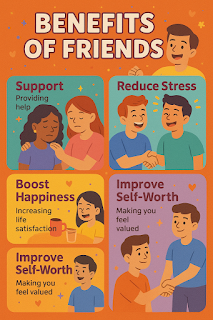Life today asks a lot from us. Whether you're juggling deadlines, raising kids, pushing through school, or all of the above, stress can start to feel like your default setting. For young professionals, career moms, and multitasking women, it’s easy to fall into survival mode—running on autopilot and hoping for a breather that never quite comes. But managing stress isn’t about escaping reality or pretending things are fine. It’s about learning the kinds of coping skills that actually help—and using them in a way that fits into your real, busy life.
It’s worth saying upfront: not all coping is healthy. Many common habits—doom scrolling, stress snacking, zoning out to TV—feel good in the moment but don’t really help in the long term. These are called avoidant coping strategies, and while they’re normal, they usually lead to more stress later. What we need instead are positive coping tools—the ones that help us manage stress in a way that supports mental clarity, emotional well-being, and overall health. Thankfully, there’s solid science behind what works.
Five Evidence-Based Coping Tools You Can Actually Use
1. Reframe the Narrative
When a situation feels overwhelming, how we think about it matters just as much as what’s happening. Cognitive reframing—a core idea in Cognitive Behavioral Therapy—means shifting your perspective to reduce stress. For example, instead of thinking, “I messed up again, I can’t do this,” you might reframe it as, “That didn’t go the way I wanted, but I can learn something from it.” This isn’t about sugarcoating things; it’s about seeing them clearly and staying flexible in your thinking.
2. Schedule Feel-Good Tasks (Even Small Ones)
When life feels heavy, the idea of doing something enjoyable can seem out of reach. But behavioral activation, a strategy used to treat depression and burnout, says otherwise. It works by nudging you to do small, value-based activities—even if you don’t feel like it. That could be a 10-minute walk outside, reading one chapter of a book you love, or calling a friend. These moments matter. They build momentum and give your brain a much-needed break from the grind.
3. Practice Tiny Mindful Moments
Mindfulness doesn’t have to be an hour-long meditation. In fact, brief “mindful micropractices” can be more doable—and just as effective. Think: one minute of focused breathing before a meeting, tuning in to how your coffee smells as you make it, or noticing how your body feels during a stretch. These practices activate your calming nervous system and help bring down stress hormones like cortisol. Studies from Mindfulness-Based Stress Reduction (MBSR) programs show that even small doses of mindfulness can reduce anxiety and improve focus.
4. Problem-Solve Instead of Ruminate
Sometimes, stress sticks around because we keep thinking about the problem instead of working toward a solution. That’s where solution-focused coping comes in. It’s about asking, “What can I actually do about this—right now or today?” Break the issue into steps, brainstorm options, and take action on just one piece. This approach has been shown to lower stress levels in professionals by increasing a sense of control and confidence.
5. Lean Into Meaningful Support
Stress can be isolating, but we’re not meant to handle everything alone. Social support—from friends, family, or even coworkers—buffers stress in powerful ways. And it’s not about having a big social circle; it’s about having safe, honest conversations. Whether it’s venting to someone who really listens, asking for help, or joining a parenting group, quality connection triggers feel-good hormones like oxytocin and helps us feel more grounded.
Bringing These Tools Into Your Life
Here’s the good news: you don’t have to overhaul your life to benefit from these strategies. It’s about weaving them into your routine in small, consistent ways. For instance, a career mom might pause for three deep breaths before opening her inbox, reframe a stressful parenting moment with self-compassion, and plan a short walk with a friend after work. A student juggling classes and childcare could start her day with five minutes of quiet before the rush begins—and remind herself that asking for help is a strength, not a weakness.
These aren’t magic fixes. They’re practical, proven ways to navigate the real-world stress we all face. They support your mental health, help you stay present, and give you tools to respond instead of react. Over time, they also model something important for the next generation: that taking care of yourself isn’t optional—it’s responsible, wise, and empowering.
Want to Dig Deeper?
Lazarus & Folkman’s Transactional Model of Stress and Coping
Jon Kabat-Zinn’s Mindfulness-Based Stress Reduction (MBSR)
Behavioral Activation techniques for burnout and depression (Cuijpers et al., 2007)











